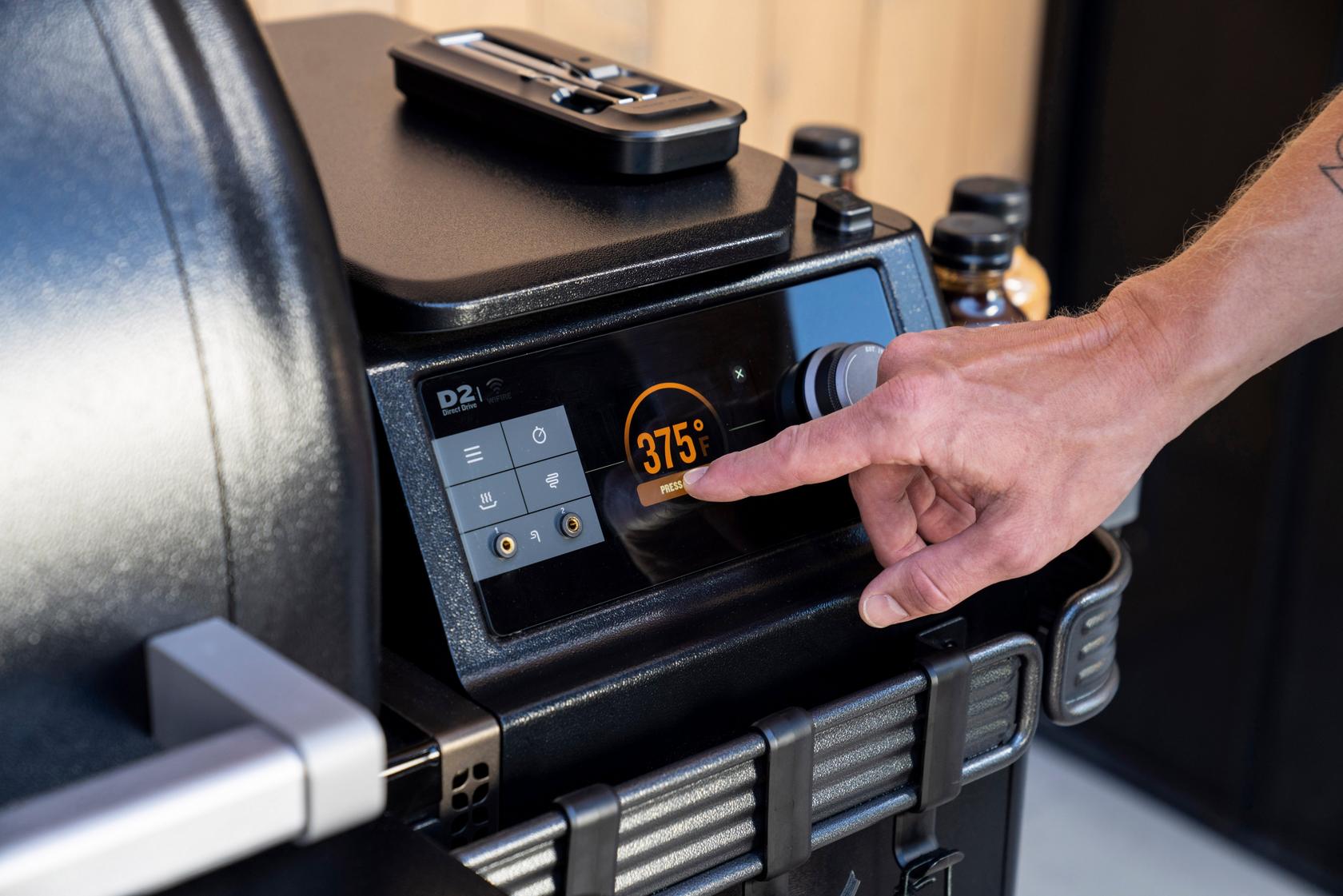Grill Temp Fluctuating

A temperature swing is when your grill's temperature rises above and sinks below your set temperature on an extreme level.
NORMAL TEMPERATURE BEHAVIOR
Traeger grills cook on an average, very similar to your home oven. This means the temperature will have slight fluctuations, either higher or lower than the set temperature throughout the cook; but over time, the temperature averages out to what you set it to. A home oven does the same thing, producing an average temperature over the course of the cook. So while a home oven shows you the average temperature, a Traeger shows you the real-time temperature of the grill.
On a typical, good-weather day, your grill should fluctuate no more than ±15°F (±9.5°C).
COMMON CONTRIBUTORS TO TEMPERATURE SWINGS
Many things can affect the grill's temperature--frequently opening the lid, cold weather, heavy food load, poor airflow circulation, changing set temp often, etc. See below for info on each scenario.
- AIR CIRCULATION
- When cooking, avoid using large pans that can block the airflow of the grill. If a pan needs to be used, ensure at least an inch of clearance between the grill and the edge of the pan. Also, try to maintain an inch clearance from the edge of the grill when placing food on your grill.
- USING FOIL AS A DRIP TRAY LINER
- If you choose to use heavy-duty foil in place of a drip tray liner, make sure the foil is wrapped tightly around the edges of the drip tray. If the foil is fanned out, this can cause airflow issues.
- DRIP TRAY & HEAT BAFFLE PLACEMENT
- If the drip tray or heat baffle is damaged or placed incorrectly in the grill, you may experience temperature issues. Damage that can cause temperature swings would be extremely warped components (note that mild warping is normal) or rusting to the point that there is a hole in the tray or baffle. For damaged parts, please get in touch with Customer Service.
- OPENING THE LID TOO OFTEN
- Repeated opening and closing of the lid too often can cause temperature issues. Remember, "If you're looking, you ain't cookin'!"
- IMPROPER STARTUP & SHUTDOWN
- Make sure to follow the proper startup and shutdown processes. Improper startup and shutdown will often lead to temperature issues during your cook.
- PELLET QUALITY
- Low-quality or old pellets can cause temperature fluctuations. Check the pellets at the end of the auger or in the firepot to make sure they have a nice sheen to them and have a nice "snap" to them when breaking. If the pellets crumble or look dull, try a fresh bag of pellets.
- CHANGING THE TEMPERATURE OFTEN
- If you change the temperature too often during a cook, this can cause issues with maintaining temperature. Instead, give time between changing temperatures so the grill can keep up with the changes.